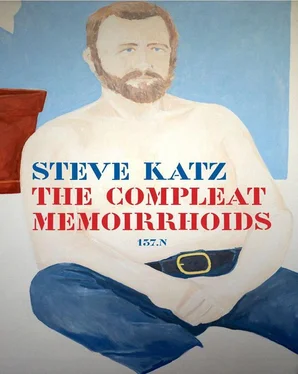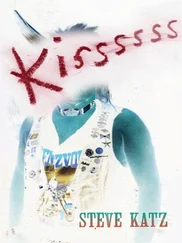Often I lingered in the hotel dining room in the evening schmoozing with a missionary, or eavesdropping on the two young women with their Haitian swains. Then I crossed to my cottage in the darkness, in the warm night air. The atmosphere of Cape Haitïen in the twilight was spooky, especially after a couple of tokes. It was full of spirits wafting by on the woodsmoke. As many times as I made that walk, I never got used to it, especially in the darkness. Once at midday I passed a young woman sitting in an opening near the ocean. A little girl was brushing out her hair. A perfect beam of light focused on them through the clouds. I had a camera with me, and turned back to take her picture. “Stop,” she said. “If you want a picture you have to pay me.” I did pay her. The clouds swallowed the light. The picture turned out poorly. It was at twilight when I’d begin to feel a vague threatening. The rocks glowed white in the dwindling light, as if they were about to release their spirits. Nothing bad ever happened. There was really nothing to fear. Smell of woodsmoke lingered in the darkness. People materialized, it seemed, out of nowhere. Whites of eyes. White teeth. It was an effect I wanted to write into my script without its being corny or seeming racist. Just an image. Bon nuit, Monsieur Blanc. Bon nuit, Monsieur Blanc .
In the mornings I did tai chi forms on the small terrace in front of the cottage. That practice makes me feel more connected to a place, settles me into the gravity. Women passed all through the day with jugs of water on their heads, or baskets full of papaya, mango, banana, corrosol. They grabbed their baskets with both hands as they turned to look at me on their way over the hill. I wanted their posture and their grace to flow into my script. No matter how early I started my forms there were kids out there watching me. They had a lot of patience to sit through it but there wasn’t much other entertainment for them. One morning a young woman squatted on the edge of my terrace to watch me. She was very dark and very beautiful. Beauty often makes me stumble when my performance requires balance. When I finished she stood up and followed me to the door of my kitchen and looked in. After we exchanged smiles she stepped over the threshold. Donnes-moi une verre de l’eau glacé . It took me a moment to get what she was saying. The people were too poor to afford ice very often. She slid close to me and stroked my thigh. L’eau glacé . She touched my dick through my shorts. I turned to the fridge to fill a glass with ice and then finished filling it with bottled water. She unzipped my fly and took hold of my dick. I handed her the glass and she took it, but kept her grip on the penis, and she squeezed it lightly as she sipped the cold water. Soft hands, I thought. Then she went to her knees and took me in her mouth, chilled by the ice water. It was a cold shock, and thrilling. I trembled. What would this cost? And how many ways? This was morning, my best writing time. I was powerless, money my only strength. She tugged me into the next room offered herself sprawled on a chaise. Her pussy was lovely primrose pink against dark chocolate skin.
“Viens. Viens tu,” she beckoned, nodding her head from side to side. This was the darkest body I ever saw naked. This was like looking into a moonless night sky. I invoked constellations to emerge across the belly. Orion. Bootes. I thought how beautiful. I thought wife and kids. I thought disease. I thought I am a racist. I thought work on script. I thought how flesh how flesh. Who is this dark beautiful girl? From where comes my sadness, my confusion? The darkest skin I have ever looked at, and its primrose wound. I want the image in my script. And I didn’t touch her, and for many days I felt stupid, horny, and relieved.
One morning a whole classroom of kids arrived to watch me do my form. A powerful young man followed them, in a pale green sweatsuit. About twenty yards from where I was doing the form he started to practice karate kata. He looked very powerful and handsome and full of competitive juice. My tai chi was not about the kind of combative power he expressed. It was about centering, relaxation, meditation. I was surprised the kids could even tell it was a martial art. Did they bring their teacher in hopes that we would duke it out? The guy was powerful and limber. He could have mashed me. Did he actually come by because he hoped to spar? I knew some tai chi practitioners who might have taken him up on it. Not me. I backed into the cottage like a snail into its shell, and sat down at my table, and went back to work on what I was being paid to do — write a script. Some kind of Hollywood thing. Some kind of life of Toussaint Louverture Hollywood thing.
In lands far away, in dark neighborhoods obliterated by time, when Ron Sukenick lived in a place he called California, and I in a different place I called New York, we met once or twice a year, near one or another of these locations to discuss the nature of the literary world, and try to figure our positions in it. Mostly I didn’t give a fuck. He often urged me to join him and do some critical writing to describe and defend our situation outside the mainstream. I could never devote myself to what he saw as an epic struggle between the ponderous old pachyderms of the establishment, slow, lifeless, and the swift nimble weasels of the guerrilla actions of our explorations. Wow! This rhetoric is exactly why I resist writing about writing. I always assumed that practice precedes theory, and that any attempt to explain it before I did it would stifle my process. And don’t get me wrong. I’ve always had absolutely the greatest ideas in the world. Believe me, immense thoughts waddle through my mind every minute. It’s to Ron’s great credit that he was able to conflate his theoretical writing and his fictional works almost seamlessly. His Narralogues are evidence of this. Both he and Ray Federman, who also did critical writing with ease, created their books, from the first to the last, as vehicles for continuous and supple monologues, like protoblogs. Rarely do they hide their own personae, but keep them talking in the foreground. I was never interested in that kind of project. I’ve wanted my work to spin stories, work my tellings in a field fertile with moral dissonance, twist the traditional narrative, explore the possibilities of language, edge towards chaos.
Though each book I’ve written raises its particular challenge, and each offers different possibilities, there are some issues that I face consistently. One lies in language itself, an enigma that confronts any writer when he tries to use it to express or describe. It never seems to do the job well enough. The subject always eludes the words you use to entrap it. It’s a blessed paradox. Inevitable failure keeps the writer working. We have to write it again, and again. And so Paul Valery tells us you can never finish a work, all you can do is abandon it.
That language can only scratch at the ineffable has made me confront another aspect of writing fiction that continually bugs me, and that is the presumption of narrator’s omniscience. I’ve done battle with that presumption in most of my works. As a literary artist I’ve tried to be a witness to my times, and to subject that witness to conscientious scrutiny. The language of fiction, and particularly the presumption of omniscience, creates a hierarchical relationship by which the reader, in his “willing suspension of disbelief” is more or less pleasantly oppressed. “It’s okay with me, dude, just tell me the rest of the story.” A post-modern cliché, established in reaction to this configuration, is the convention of self-reflexivity, where the writer “exposes” his inadequacies, and his problems writing the narrative. Here the ironies get thick as pine pitch. The writer asks for the indulgence of his readers, to understand his problems. In that way the author pretends to surrender omniscience, and opens the way for the reader as an equal, or even as his superior, to participate and sympathize.
Читать дальше












